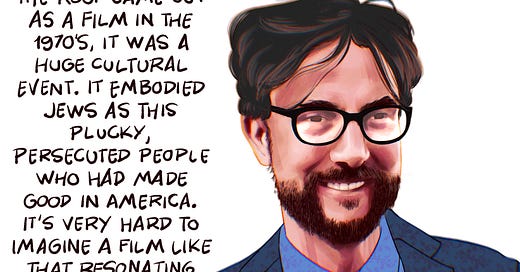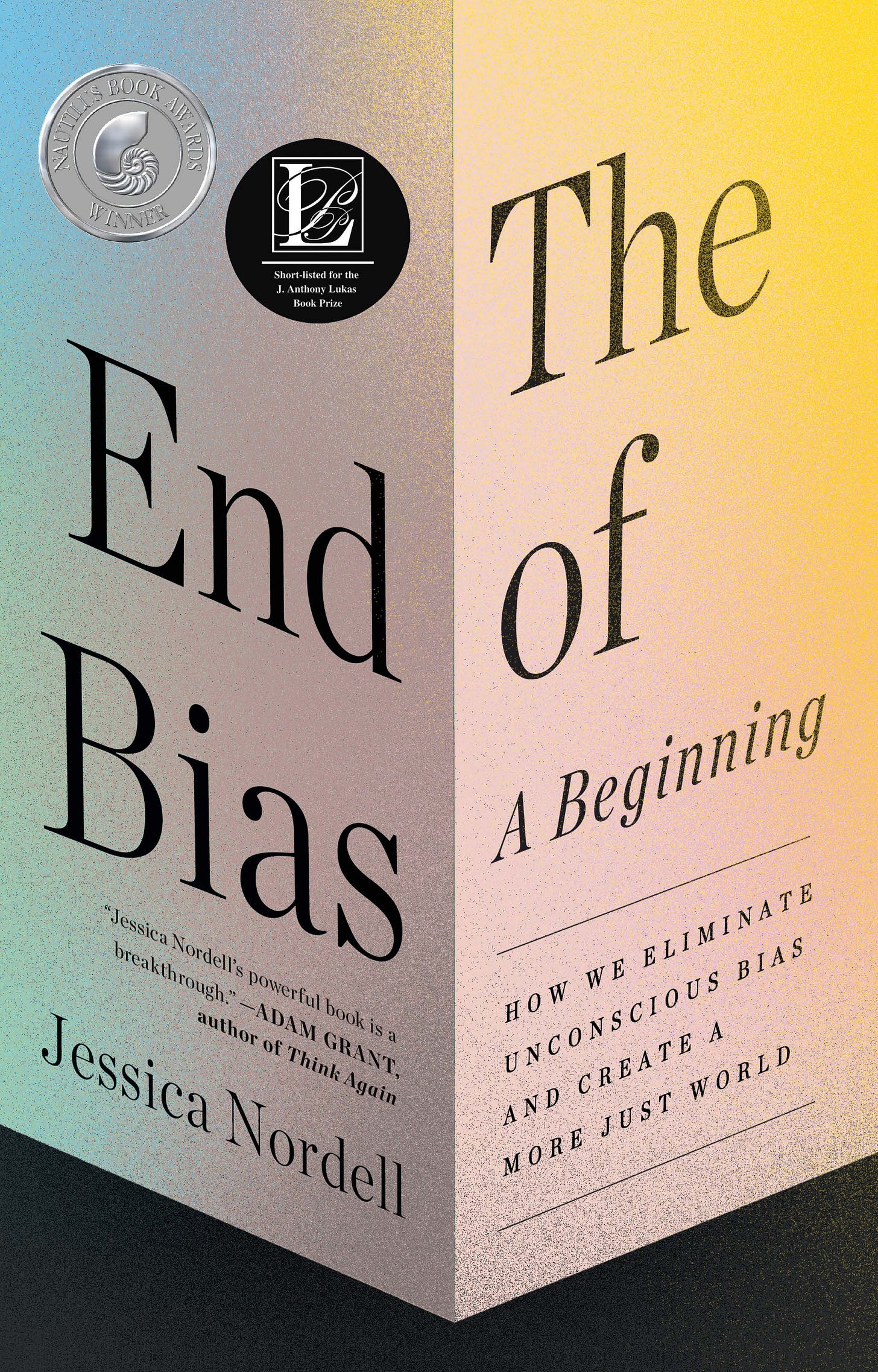The New Antisemitism, or WTF is Going On?
Chatting with Ethan Katz about Dave Chappelle, Mussolini's fan mail, and why this is all happening
Dear friends,
Growing up in the ‘80s and ‘90s, antisemitism felt totally remote. I remember in 4th grade a kid with a sleekly gelled mullet called me an “Israelite” on the playground. “That’s weird,” I thought. Mostly I was impressed with his vocabulary. To a Jewish kid like me, antisemitism was a Problem From Long Ago. So it’s been frightening and bewildering to see it swell, from the tiki-torchers shouting “Jews Will Not Replace Us” to Kanye, Kyrie Irving, and Dave Chappelle all making either overt or winking statements about Evil Scheming Jews.
I wanted to understand what’s going on, so I talked to Ethan Katz—a renowned scholar of Jewish history, a Jewish historian at UC Berkeley, and a leader in teaching about antisemitism on campuses— about how these current outbursts fit into a broader history. Also: Mussolini’s fan mail, poisoning wells, and a guy known as “the Pope of Antisemitism.”
I keep wondering— was the relative calm of our childhoods an aberration, and the norm actually is antisemitism? Or is antisemitism the aberration?
I think the late 1990s is probably the peak of Holocaust consciousness in the United States— between the opening of the Holocaust Memorial Museum in Washington, which millions of people visited in the first few years, and the number of Holocaust films and books widely disseminated in popular culture, and conversations about how you needed to go hear survivors because they were passing away.
It was also the last high watermark of Jews as the clear third religious group in America. Catholics, Protestants, and Jews. Since that time, people have developed more consciousness about how diverse the country is and other systemic inequalities. Holocaust consciousness has receded. The sense of Jews as a subaltern people in American life has all but disappeared for many people.
I mean, when Fiddler on the Roof came out as a film in the early ’70s, it was a huge cultural event. It was an incredibly long film– it had an intermission! And it was, like, the most successful film of the year. It embodied Jews as this plucky, persecuted people who had come to America and made good in America. It's very hard to imagine a film like that resonating with huge portions of the populace today.
The late 1990s is probably the peak of Holocaust consciousness in the United States.
Do you think of antisemitism as the norm, historically, or as this weird virus that flares up occasionally?
I’ve come to think of antisemitism as a reservoir. That's the formulation of my colleague David Feldman. It can be dipped into, but it's always there. I think it is as baked into the Western tradition as anti-Black racism, and sexism, and other forms of discrimination. It's there and ready to be invoked by certain actors for certain purposes.
If this reservoir is always there, what factors cause people to dip their ladle in at a given time, like now? Or for a whole society to think, now's a great time to take a big swig?
Clearly White nationalism has become a major force in American politics in a very overt way. If you go read the urtexts of White nationalists from the ’70s, you see antisemitism is really central for their worldview. Eric Ward calls it not at the core of White nationalism, but the core of White nationalism.
I’ve come to think of antisemitism as a reservoir. It can be dipped into, but it’s always there. It’s there and ready to be invoked.
Interesting.
Ward points out that when you look at violent events by White nationalists in the last five years– many not against Jews– and what the people were writing or saying in the weeks leading up to the massacre, the Jews are always there, always central to some horrible conspiracy. The so-called “Great Replacement Theory” is this idea that Whites are being replaced as the reigning majority, and Jews are the key agents. Attacks may be against African Americans or Muslims, but the idea is that Jews are manipulating everything.
Of course, Trump winks at White Nationalism pretty regularly and refuses to condemn them. That all helps normalize it.
If we zoom way out and look at the broader sweep of history, where do we see antisemitism surging? What’s going on in different contexts where we see people really splashing around in this reservoir?
The analogy given frequently, particularly by alarmists, is to the 1930s Germany. We're not living in Nazi Germany, a country where there's systemic, state persecution. We're not. We're living in a country that has an office at the State Department to monitor and combat antisemitism. We need to be real.
It looks more like certain aspects of the late 1930s in America. This Catholic priest, Father Coughlin, draws millions of listeners to his weekly radio show. He’s unapologetically antisemitic. Here’s a guy who writes fan mail to Mussolini. He takes a speech by Goebbels about how everything is the Jews’ fault and publishes it under his own name. And he’s broadcasting to millions. It's a moment when there are broader threats to liberal democracy in the U.S., and questioning of democracy by certain fringe forces in politics, not dissimilar from the forces that came together in the riot at the Capitol on January 6th.
Here’s a guy who writes fan mail to Mussolini. He takes a speech by Goebbels about how everything is the Jews’ fault and publishes it under his own name.
I think the parallels might be stronger to the late 19th century. There's tremendous global economic change and anxiety. Anti-globalization became linked for many people to antisemitism since Jews were seen as the bankers, the financiers driving global capital. There's also the rise of race science.
This is all in response to a series of anxieties, economic downturn, and a crisis of liberalism. We're definitely in a crisis of liberalism today. I think the huge economic changes of the past, say, 30 years, are producing all kinds of anxieties. We’re living in social upheaval today as well.
So antisemitism surges around these upheavals, perhaps because they create uncertainty and fear, which prime people for prejudice. And antisemitism is a ready-made prejudice people can dip into when they feel threatened. A prejudice Lunchable, if you will.
I think there's a lot to that.
I’m thinking of a conversation I had with an elderly relative who described applying to college in the ’30s, when you had to submit a photo. He told the photographer, “Do what you can.” I had to ask what he was talking about. And he said, “I needed to make sure that I didn't appear Jewish.”
We hear those stories from older people. We know about people changing their last names.
We're definitely in a crisis of liberalism today. The huge economic changes of the past 30 years are producing all kinds of anxieties. We’re living in social upheaval as well.
Let’s talk about Dave Chappelle. I was really alarmed by his SNL monologue, where he casually affirmed Jewish conspiracies. He said, “We’re just supposed to believe that the presence of Jews in Hollywood is a coincidence?” I couldn’t believe I was hearing this.
Yeah.
Where does this idea come from– Jews as puppet masters, running things behind the scenes?
The truth is negative attitudes toward Jews predate Christianity. But the attitudes that are most well known do come from early Christian ideas about Jews having murdered Jesus Christ. We know that historically that's not accurate. Even though the Romans were the ones who judged and executed Jesus, the idea was that Jews were really responsible. Right there, you have raw material for conspiracy theories.
But why this idea that Jews were some secret scheming cabal?
If we look even at pre-Christian ideas about Jews where there's hostility-- like the Hellenic context or the Roman– in every case, it's partly tremendous frustration at Jews for not being willing to conform to nascent ideologies or religions. They don't want to adopt multiple gods under the Romans.
We know Jesus was in fact Jewish. The origins of Christianity are among people who still consider themselves Jews. So there's tremendous infighting going on. Theologically it becomes a big problem for Christians, what to do with the Jews, partly because Jews were still around and they didn't accept Christ.
If we look even at pre-Christian ideas about Jews where there's hostility, it's partly tremendous frustration at Jews for not being willing to conform to nascent ideologies or religions.
Within a relatively short time, it all goes together: that idea not only did Jews not accept Christ, they actually murdered him. Being forced into exile, facing persecution, is considered proof that they're being punished by God.
In the Middle Ages the idea that Jews murdered Christ becomes the idea that Jews are hostile to Christians. That’s where you have the first ideas of the blood libel [the false but imaginative accusation that Jews used Christian blood for baking holiday breads]. During the Black plague, the claim that Jews are poisoning wells.
Jews were often brought into communities because they disproportionately had expertise in financial areas–
—because they were blocked from many professions, but not moneylending, which was prohibited for Christians.
Then when there are financial problems, rulers can blame them, the population can take out its anger on them. So there’s this idea that Jews are hostile to Christians, they're financially powerful, and they're financially disadvantaging Christians.
Being forced into exile, facing persecution, is considered proof that they're being punished by God.
To me, Chappelle’s comment is a failure of imagination– of being able to see that a concentration of people in a profession can be both not a conspiracy and not a coincidence. There are real historical forces behind it.
We know elite law firms and hospitals refused to employ Jews, so they started their own. Rabbi Jay Michaelson just wrote about how early film was considered too vulgar for good Christians to be involved with, so it was open to Jews.
And denying that there is a Jewish conspiracy to control Hollywood doesn't mean denying that Jews are in prominent roles, or have been successful in certain areas. And that’s complicated. We have to walk through the complexity of what leads to concentrations of people in certain areas.
Denying that there is a Jewish conspiracy to control Hollywood doesn't mean denying that Jews are in prominent roles, or have been successful in certain areas. And that’s complicated.
For most Jews of earlier generations, making it in America meant becoming educated. For many, it was connected to social activism and justice, so, for example, Jews became disproportionately involved in a lot of those movements.
But it was also connected to monetary wealth and upward mobility in your profession. I think once Jews became successful in certain industries, just like for all ethnic groups, they often helped each other. Not because you're a Jew, but because you know Uncle Morty or your cousin is friends with my grandmother. Networks that developed that become almost self-perpetuating.
So this is also how something can be both not a coincidence and not a conspiracy. There’s no elite cabal, but there may be a ground-up effect– people connect people they know and trust.
I think once Jews became successful in certain industries, just like for all ethnic groups, they helped each other. Not because you're a Jew, but because you know Uncle Morty.
I have this other ongoing question about a tension in pluralistic societies. It’s so unresolved I thought about calling my book “A Series of Unresolvable Tensions.” My publisher was not excited about that.
I'm glad you didn't do that.
Harder to leap off the shelves. Here’s the tension: on one hand, emphasizing differences can stoke prejudice. Historically, we see that as group differences are emphasized, there’s more risk of stereotyping and discrimination. On the other hand, denying differences carries huge risks. And differences give us belonging and make life meaningful. How do you think we should balance these?
I think it's really hard to make the case that Jews have faced more persecution in times where Jewish difference has been more pronounced.
Interesting.
To White nationalists, Jews are so dangerous because they look like everyone else. Of course, they only know European, White-skinned Ashkenazi Jews.
In Nazi Germany, Jews felt extraordinarily integrated. Huge numbers are super assimilated. Today, to White nationalists— they only know European, White-skinned Ashkenazi Jews, they don't know about Jews of color, which is another important topic— for them, Jews are so dangerous because they look like everyone else.
It’s also present for Edouard Drumont, who writes The Jewish France in the 19th century, which becomes a huge bestseller. He was known as the Pope of Antisemitism. Quite a title.
Seriously.
He claims Jews are dangerous partly because they look like everybody else. They’re fomenting all sorts of things, and people don't realize it.
In the modern Western context, Jews have often been told that they need to assimilate. Later, they’re told that, in fact, they cannot actually assimilate. They're not actually like other people, and they remain dangerous.
Right.
In the modern Western context, Jews have often been told that they need to assimilate. Then later, they’re told that, in fact, they cannot actually assimilate. They're not actually like other people.
Groups can stand out even if they’re not visible as groups. We have these inherited stereotypes. Here, many Jews can blend in. Of course, there are Jews who have big “Jew fros,” or who dress in religious ways. But Jews can often escape visibility and walk around with White skin privilege-- even as most Jews in America do not consider themselves simply “White” full stop.
Difference is weaponized in a situation like Rwanda, where you have ethnic groups that had been, in a sense, invented by colonizers. The ethnicities had existed before, but they were malleable. You could move between them. The colonizers solidified group differences in part because they needed a proxy elite. Those “ethnic differences” were then weaponized during the genocide.
Maybe for Jews, that perceived difference is so deep and old and embedded in people's minds that it doesn’t matter how assimilated Jews are.
Antisemitism historically is not about what Jews are doing. The most horrific is the case of the Holocaust. Jews were defined racially. It did not matter if Jews had converted to Catholicism. It was about the number of Jewish grandparents you had.
Jewish success is often equated, particularly now, with full assimilation, full acceptance. One of the challenges around Jews and Whiteness— there's a scholar named David Schraub who's written about this— is that defining Jews as White ends up accelerating antisemitic stereotypes about disproportionate power.
When people are making their assumptions about Jews, they are often now linking Jews to assumptions about Whiteness. A striking example of how Jews’ difference, from a certain political vantage point, is not the problem.
❤️🔥 Quote I Can’t Stop Thinking About ❤️🔥
“You are not obligated to complete the work, but neither are you free to desist from it.”
— from the Pirkei Avot, ethical teachings from Rabbinic Judaism
💫 Announcements 💫
* Book clubs reading The End of Bias: A Beginning can sign up here for a 30 min “Zoom with the author.” I’m excited to meet you.
🐾 Recent Appearances 🐾
Chats with Jonathan Fields of the Good Life Project— and Carissa Potter Carlson from Bad at Keeping Secrets, below!








As a non-Jewish person, this was fantastically educating. I've never believed any of the conspiracy theories, but also didn't know the explanations for why they weren't a coincidence. Such valuable information here.